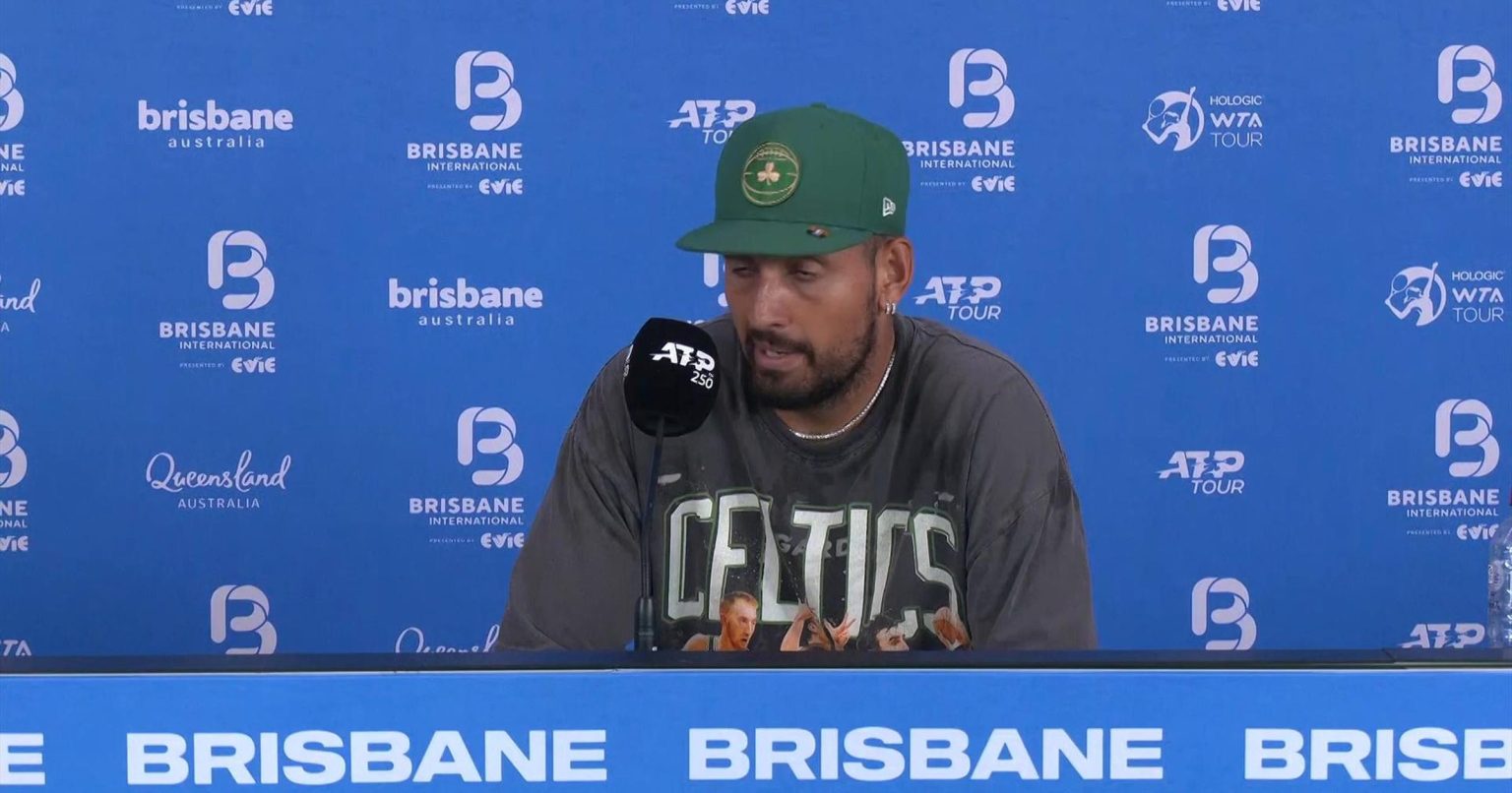In a candid interview ahead of the Brisbane International, Nick Kyrgios unleashed a scathing critique of the handling of doping cases involving two tennis luminaries, Jannik Sinner and Iga Swiatek, both former world number one players. Kyrgios characterized the management of these cases as “horrific” and “disgusting for our sport,” asserting that the processes were deeply flawed and detrimental to the integrity of tennis. While he didn’t delve into specific details of the alleged mishandling, his strong words ignited a debate about the transparency and efficacy of anti-doping procedures in professional tennis. He implied that the lack of clear communication, potential delays, and perceived inconsistencies in applying the rules have created a climate of suspicion and eroded public trust.
Kyrgios’s outburst highlights the broader concern surrounding the delicate balance between protecting athletes’ rights and upholding the principles of fair play. Doping scandals, regardless of their ultimate outcome, cast a long shadow over the sport, impacting individual reputations and fan confidence. The perceived mishandling of high-profile cases like Sinner’s and Swiatek’s further exacerbates the issue, creating a sense of uncertainty and fueling speculation. The Australian’s strong language reflects a growing demand for greater transparency and accountability from anti-doping authorities. He seemed to suggest that the procedures currently in place are insufficient to address the complexities of doping allegations, particularly when they involve prominent figures in the sport.
The implication of “horrific” handling suggests potential flaws at various stages of the anti-doping process, from the initial testing and sample collection to the subsequent analysis and adjudication. It raises questions about the adequacy of the protocols used, the potential for human error or bias, and the timeliness of the entire process. A protracted and opaque investigation can severely disrupt an athlete’s career, even if they are ultimately exonerated. The damage to their reputation and the mental toll of the proceedings can be substantial, highlighting the need for a more efficient and transparent system that minimizes the negative impact on athletes while maintaining the integrity of the sport.
Kyrgios’s use of the word “disgusting” suggests a deeper moral objection to the perceived injustice of the situation. He appears to believe that Sinner and Swiatek were unfairly treated, potentially subjected to unnecessary scrutiny and public condemnation before all the facts were known. This raises the question of whether the current system adequately protects the presumption of innocence and ensures that athletes’ rights are respected throughout the investigation. The potential for damage to an athlete’s career and reputation before any definitive findings are made highlights the need for a more balanced approach that safeguards both the integrity of the sport and the rights of individuals.
The potential consequences of such perceived mishandling extend beyond individual cases. It can erode public trust in the sport as a whole, leading to cynicism and skepticism about the legitimacy of results. When fans lose faith in the fairness and integrity of the game, it undermines the very foundation upon which professional sports are built. Kyrgios’s outspoken criticism, while potentially controversial, brings this crucial issue to the forefront, forcing a conversation about the need for reforms and improvements within the anti-doping system. It emphasizes the importance of establishing clear protocols, ensuring thorough and impartial investigations, and communicating transparently with the public to maintain credibility and ensure a level playing field.
In conclusion, Kyrgios’s public condemnation of the handling of Sinner’s and Swiatek’s doping cases serves as a wake-up call for the tennis world. His strong words highlight the potential vulnerabilities and inadequacies of the existing anti-doping system and underscore the need for greater transparency, efficiency, and fairness. While his delivery may be characteristically blunt, his message resonates with the growing concerns about protecting athletes’ rights while upholding the integrity of the sport. The call for improvements in the anti-doping process is not just about ensuring a level playing field; it’s about preserving the credibility of tennis and maintaining public trust in the fairness and legitimacy of the game. The future of the sport hinges on the ability to address these issues effectively and create a system that protects both athletes and the integrity of the competition.

